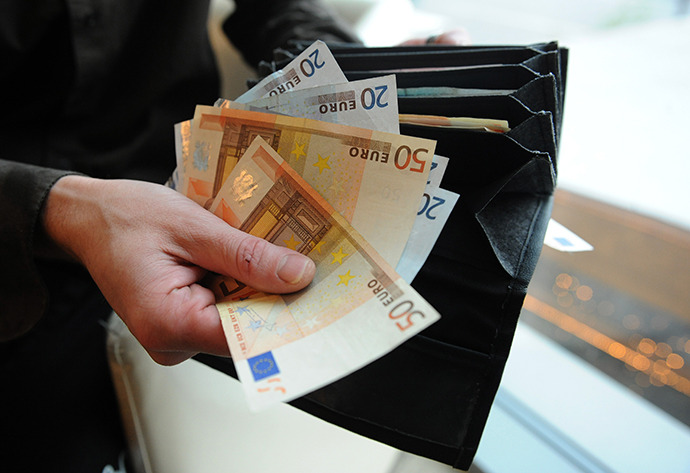It’s not just the eurozone that is increasingly derided as a failure: Now, the very European Union itself is mistrusted by its largest members. And who discovered this gem of Eurosceptic propaganda? The EU’s own statistics agency.
In the heyday of ancient Rome, the Emperor satisfied the citizens with ‘panem et circenses’ (bread and circuses). Alas, the Roman law-based empire the European Union is spluttering through waves of crises thanks to their odd belief that bread and circuses can be replaced by austerity. Nations have been left wearing hair shirts (and worse) in the masochistic belief that they can slim their way to health if sufficiently starved of stimulus.
So it may not be such a surprise that polling conducted by the EU’s own EuroBarometer agency has shown a simply staggering reversal in how major European nations view the EU. In 2007, Germany’s refusal to abide by Euro currency rules was copied by Mediterranean states, economic growth was taken for granted, and various asset bubbles propelled a sense of calmness, confidence and wealth. At the time, polling showed that the EU was widely trusted, except in the UK.
But now, even in Poland, where economic growth has continued, the percentage of people who distrust the EU has catapulted from 18 percent to 42 percent. The pragmatic Poles are wavering in their support of joining the Euro. Indeed, one poll showed some 20 percent suggested fiscally sound Euro nations should join the Zloty!
In five other nations a majority of citizens now clearly distrust the Brussels apparatus. In Britain, this amounts to a remarkable 69 percent, up from 49 percent in 2007, placing them second behind the Spaniards, where post-property-bust distrust has leapt from 23 percent to a resoundingly skeptical 72 percent.
This message from the heart of EU bureaucracy ought to be very clear: The European Union is utterly and completely out of step with the views of its citizens. Some 59 percent of Germans distrust the EU over frustrations at having to transfer billions in bailouts to Mediterranean states, while on the southern fringes of Europe the citizenry who trusted the EU are now being forced to deal with austerity that will deliver significant pain.

The EU remains an organization with plenty of presidents, but no leadership. The crumbling quasi-imperial edifice fails to appreciate the tectonic shifts shredding its influence. A democratic deficit at the top with limousine liberals on tax-free salaries looks as out-of-touch as the Soviet Politburo in 1985. A genuinely beneficial free trade zone has been hijacked by a crazed group of political integrationists convinced of their divine right to make Europe one big nation.
However, this is not one big happy family. Nor is the opposition a single unitary group. This may permit divide-and-conquer politicking within the EU, but the ultimate fissures will be very hard to paper over to achieve the foolish integrationist ideal. The EU itself may yet collapse.
Yet even though distrust is at record-high levels, the Eurosceptics are anything but harmonized. The Five Star Movement in Italy has little in common with Scandinavian True Finns or Britain’s UKIP. British Euroscepticism is tinged with a right-wing individual determinism and innate distrust of central government. In other places, Euroscepticism may wear the mask of Fascist or other unpleasant socialist extremists. In the Mediterranean, there is incredulity that the EU is not the ultimate lender of last resort there to bail out bankrupt welfare systems. Ironically, such models of patronage and state-assisted folly were not reduced earlier, because the Euro had artificially low interest rates as the ECB sought to keep the German economy healthy.
Brussels, aided and abetted by a generation of political pygmies, has played its cards so badly that while the Euro faces death by a thousand cuts, even the core universal benefits of the EU itself are endangered. Barbaric cures to sustain a flawed currency are being disowned by a formerly Europhile political generation, such as German Socialist Oskar Lafontaine and British Conservative Nigel Lawson. Both formidable finance ministers now see how the Euro threatens European unity at all levels.
Meanwhile, with a perfect demonstration of how his political skills have become more attuned to the Brussels trough as opposed to the problems of ordinary citizens, President Barroso has remarked that the clear path to a better EU is more federalism.
When politicians ignore the people from their position of privilege, the end result is usually upheaval.




